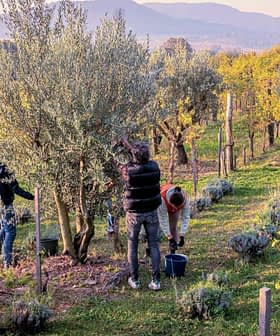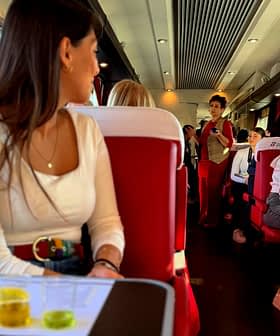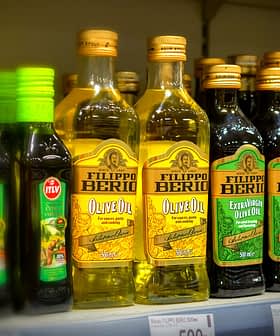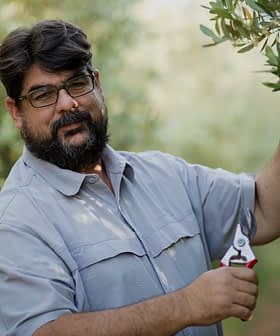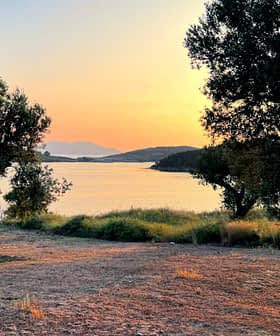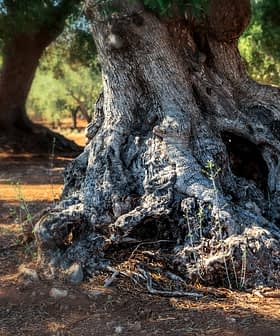Corsica Producer Fears Mediterranean Culture Under Threat
Producers in Corsica are at the mercy of policy measures to contain Xylella fastidiosa on the island. Some fear these new policies are damaging the island's olive-producing culture.
 The landscape of Linguizzetta. Photo courtesy of Pierre Bona
The landscape of Linguizzetta. Photo courtesy of Pierre BonaEmilie Borel, a French olive oil producer, believes that creating extra virgin olive oil is more than just meeting quality standards; it is a cultural tradition that involves handpicking olives and developing a taste culture. Despite facing challenges such as hostility from the community and administrative hurdles, Borel’s olive farm, Oltremonti, has flourished, but is now threatened by the Xylella fastidiosa crisis and strict government regulations that prevent her from planting olive trees.
For olive oil to be labeled extra virgin, there is a list of internationally recognized quality standards that it must satisfy. However, for French producer Emilie Borel, creating an extra virgin olive oil is much more than fulfilling a set of criteria.
“Extra virgin olive oil starts with the person,” she told Olive Oil Times. “It’s something you grow up with, look at, and touch. The olives are handpicked. It’s a culture, a Mediterranean culture.”
“Then there’s the culture of taste,” she added. “This is something you develop by educating yourself. It’s not only about rules and regulations and lists to adhere to. I’m trying to maintain this culture because it’s part of our Mediterranean heritage.”
I wrote the story of our olive farm because I had had enough and wanted to share our experiences as producers of extra virgin olive oil and the realities we face.
After a childhood spent on four continents and an international career as a development aid worker, Borel decided that her place was in the Mediterranean, where she was born. In 2006, she bought land in the municipality of Linguizzetta on the eastern coast of the French island of Corsica and single-handedly planted her first 1,000 olive trees.
Once her olive farm, Oltremonti, was born on this patch of land tucked between the mountains and the sea, it became an all-encompassing passion. She met her Italian husband Ivo Berta, an olive oil expert and mill technician — thanks to her olive trees — and their daughter, Thea, is growing up among the trees they have nurtured together.
Today, Oltremonti is composed of 3,890 trees and has its own on-site mill. The extra virgin olive oil produced here has won a long list of awards.
See Also:Olive Oil CultureBut Borel fears that the Mediterranean culture of the olive she has labored to preserve is in danger of dying out. She recently published a book in French, Les Secrets de l’Olivier, which tells the story of how her passion for the olive tree was kindled and the many trials and milestones of her olive farm.
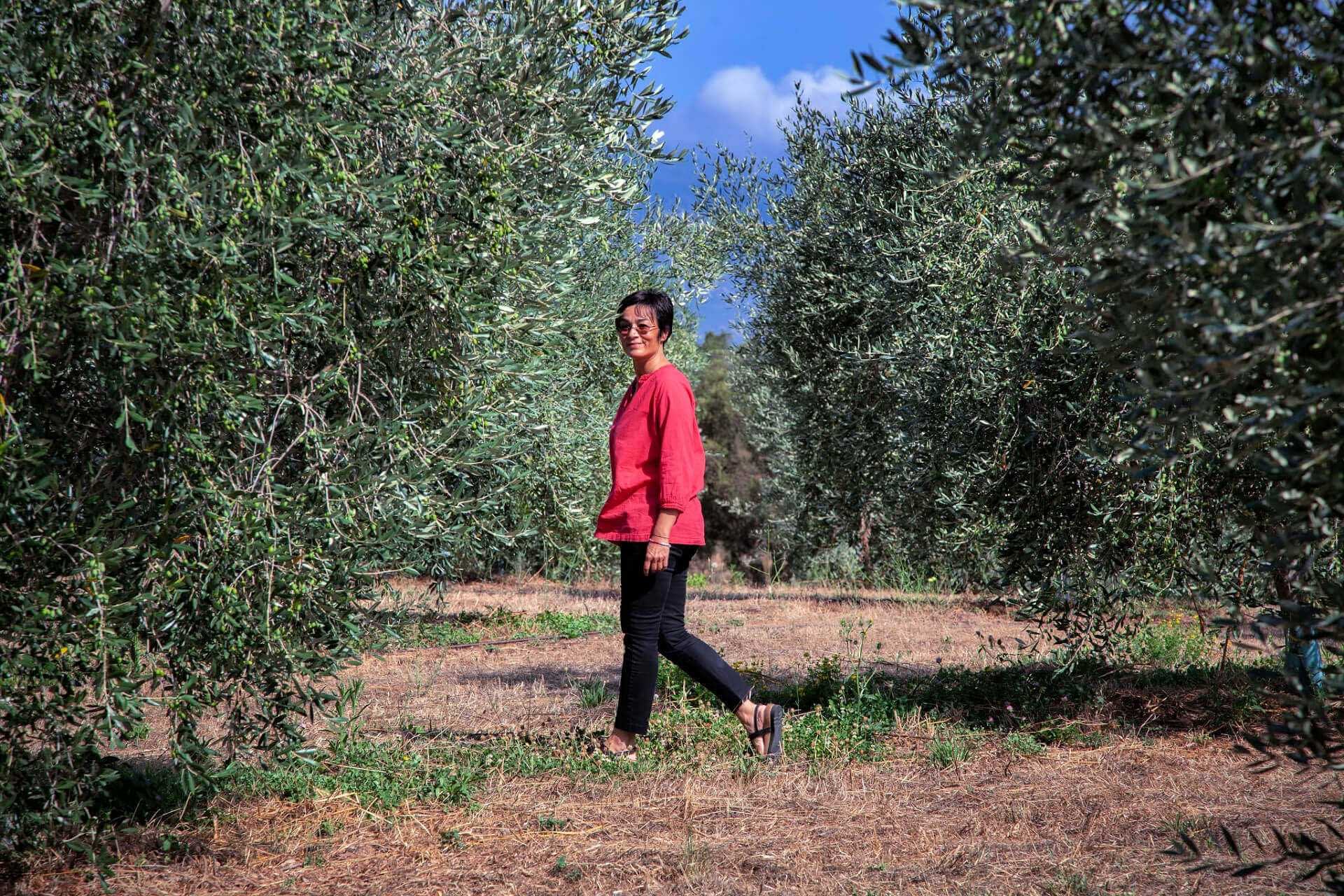
Emilie Borel (photo by Sylvain Alessandri)
Olive producers around the world face the challenges of unpredictable harvests, unstable incomes, and battles with the natural elements in the face of climate change. However, Borel has also had to deal with hostility from members of this insular island community as an “outsider” and countless administrative hurdles.
The biggest of these obstacles came with the policy measures introduced by the French government since 2015 to contain Xylella fastidiosa on the island. Today the olive farm she planted and nurtured for more than a decade is under threat.
The first case of a strain of Xylella fastidiosa called multiplex was discovered in July 2015 in myrtle-leaf milkwort plants on the southwest coast of Corsica. Six months later, two more cases were detected in southern Corsica and by the end of the year, there were 194 confirmed infections on the island.
At first, a buffer zone of 10 kilometers (6.2 miles) was imposed in order to contain the spread of the bacterium, but this was later extended to the whole island.
As a result of this agricultural crisis and the threat of new infections, it has since become illegal to import more than 200 different types of plants to Corsica, including the olive tree. Requests to be exempted from this rule can be made by producers and a compensation program was put in place by the government to indemnify them for their losses.
However, Borel’s requests for authorization to extend her olive plantation and the letter she wrote to the French president about her olive farm’s predicament have fallen on deaf ears.
“We have asked for permission from the state to plant olive trees but were refused, so we have to reproduce them on our own,” she said. “This takes years. The government had promised compensation for our losses but they haven’t honored their promise. The indemnity we expected never came. This is the worst thing you can do to farmers: cut the ground from under their feet by telling them they can’t plant and making them expect something that never comes.”
Prior to the crisis, olive trees were imported from Italy but this is now illegal.
“I first planted Frantoio trees from Tuscany,” Borel said. “This is what’s generally advised because Frantoio is believed to be equivalent to our native Ghjermana, but I later found out this is not true. When we called upon Claudio Cantini of the Italian National Research Council to come to the island, he analyzed the Ghjermana variety and found out that its DNA is completely different.”
“We thought our agricultural research institute would be interested in these findings but there was no response,” she added. “Although it may not have had the means to conduct such analyses at the time, there was now a good reason to undertake DNA research. Yet, despite a recent state-funded project to give Corsica its own plant nursery, no differentiation was made between the two varieties.”
In the spring of 2014, Borel and her husband planted a second parcel of land with varieties native to the island: Ghjermana de Casinca, Ghjermana de Tallano and Sabina. Having established their own method of reproducing local cultivars, these were grown from cuttings taken from ancient trees in a semi-abandoned grove Borel had discovered near the village of Monte, in the northeast of the island, and in the southern region of Sainte Lucie de Tallano.
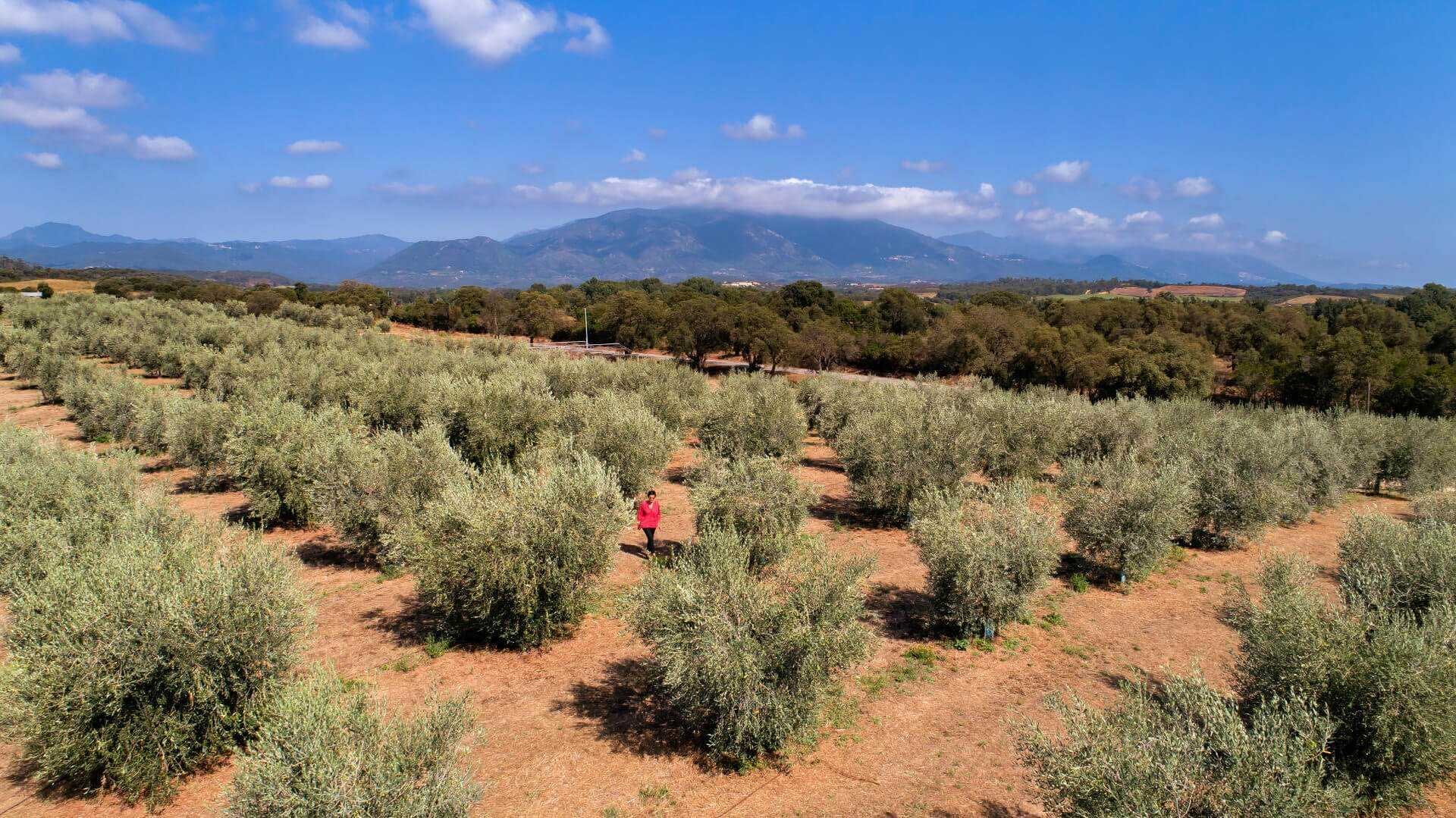
Photo by Sylvain Alessandri
Since there was no nursery in Corsica that could reproduce the trees, they sent the cuttings to Tuscany, where they were grown in a controlled and supervised environment before they were sent back to Corsica to be planted.
“We lost all the trees we sent to Tuscany just before the 2015 crisis because now it’s illegal to bring them back to Corsica,” Borel said. “There have actually been no cases of Xylella fastidiosa here, only the multiplex variant, which has attacked shrubs. This is a variant of Xylella fastidiosa that hasn’t attacked olive trees in our region.”
“In fact, two scientific commissions came to the island to investigate the issue and declared that the multiplex variant has been present on the island for 60 years, but no one had looked for it before.” she said. “On an island it’s normal to take precautions and fear diseases but we can’t just stop planting. In other countries there are plantation drives to combat global warming.”
The Xylella fastidiosa crisis arrived in Corsica just when Oltremonti was beginning to thrive. A loan provided the finance needed for the construction of the on-site mill and an extension of the groves was planted with varieties native to the island.
“With all the problems we’ve faced, including from the hostile local environment, we’ve come up short and are struggling to pay it back,” Borel said.
The couple sold a parcel of their land to try to make ends meet, but the authorities remain silent with regard to their case and the compensation that was pledged.
“I wrote the story of our olive farm because I had had enough and wanted to share our experiences as producers of extra virgin olive oil and the realities we face,” Borel said about her recent book.
“Every civilization has respected the olive tree. It’s part of our culture and our way of life,” she added. “Today we need to get authorization to plant an olive tree, and while new olive producing countries emerge, we must put up with absurd laws and rules in order to continue what traditionally we have always known to do.”



